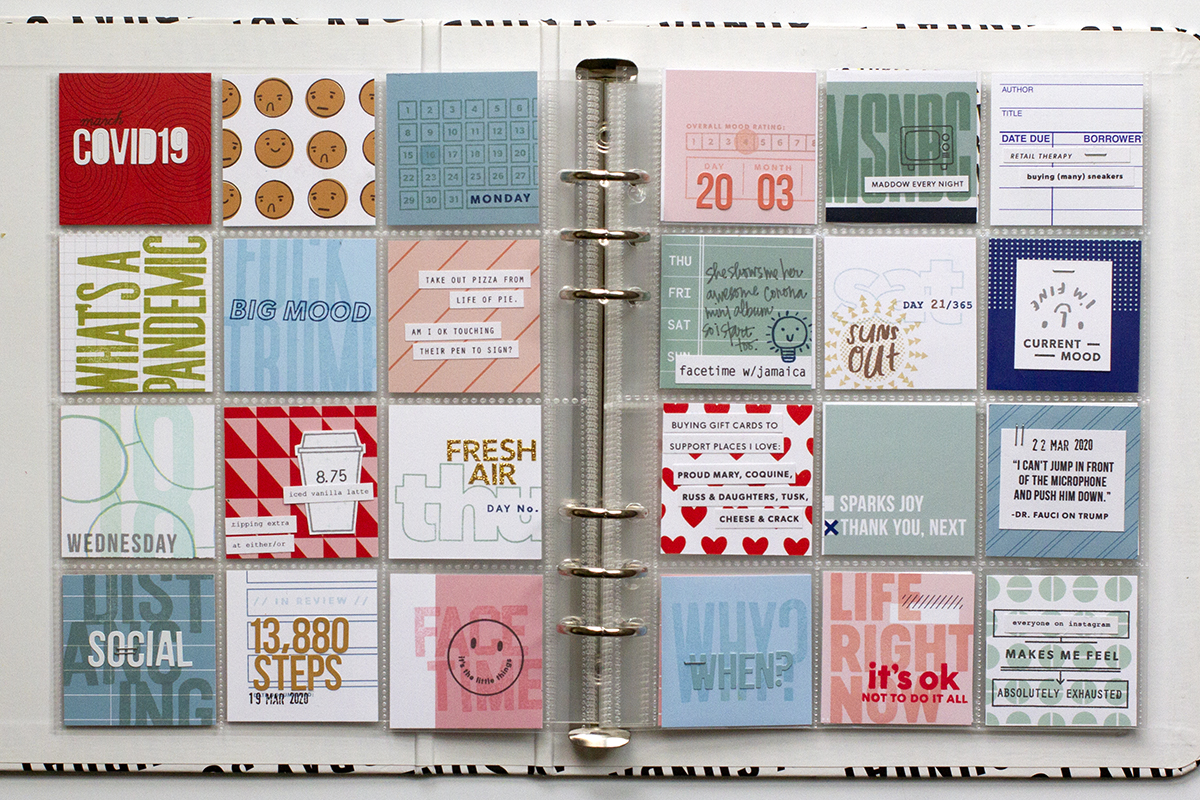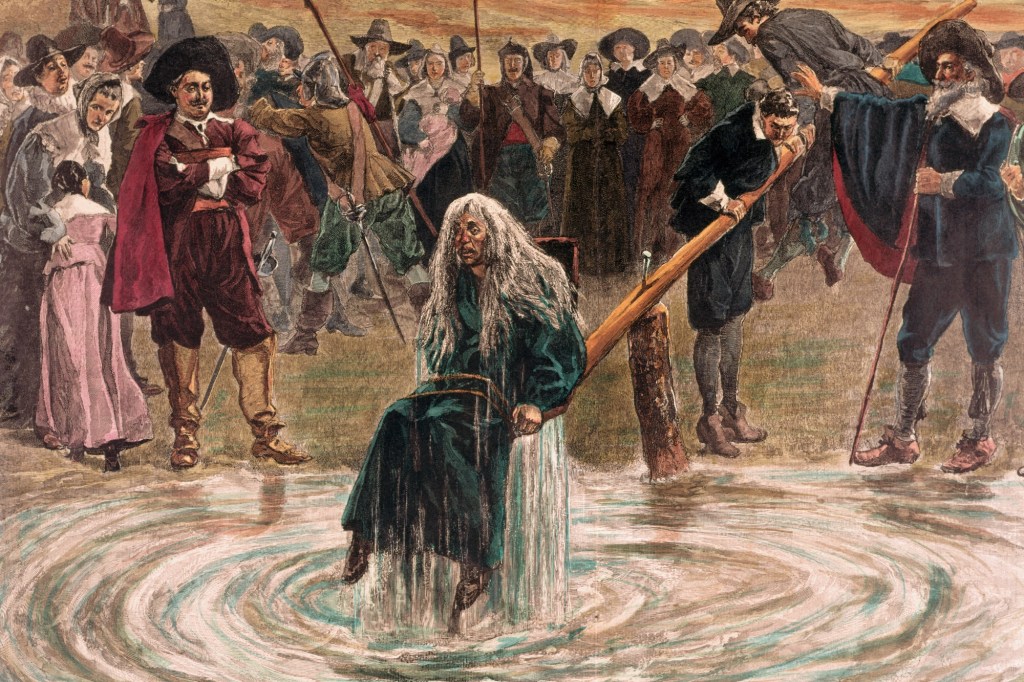For the last 20 years, Kristin Tweedale says she’s joked with her friends that they have enough scrapbook supplies to document their lives until the end of time. With craft stores locked down and many people confined to their homes, the coronavirus pandemic is certainly testing the limits of that joke.
Scrapbooking, memory keeping, paper crafting, documenting life—whatever you want to call it—can be as simple as pasting some photos and some words down into a composition notebook, or involve meticulously planned layouts designed in Adobe Illustrator, and pieced together with the finest papers. It can be purely creative, or more aimed at documenting moments for time immemorial. The books themselves can be, as Tweedale calls them, “the creator’s primary documents,” preserving experiences of their makers, and are made for an audience ranging from one to thousands. The practice has gotten me through tough times; it’s given me incredible joy, and motivated me to do something—anything—in moments of paralysis and depression. My albums capture singular moments—backpacking across Europe with my husband, my first (and only) Coachella—and more pedestrian ones: my kid opening presents on Christmas morning, dishy brunches with friends.
Videos by VICE
“My motto has always been that all adventures in your life should be documented—big or small,” said Kelly Purkey, a designer based in Portland. “When I’m feeling down or depressed it’s incredibly helpful to look through my scrapbooks and be reminded of all the good things in my life. Seeing photos of friends, travel, experiences I’ve been fortunate to have is helpful to pulling my spirits up so that’s what I tend to document.”
These albums, like so many others, serve as a window into people’s personal experiences of historic events, whether it’s how you celebrated the U.S. Women’s National Soccer Team’s incredible win at the World Cup or what it’s like when you have to repeatedly send your spouse for deployment overseas.
So how do we do this when there’s a pandemic on?
“My general approach to documenting sad or difficult stories is that I don’t focus on bad things but on the hope for something better,” said Ania Turek, a photographer in Krakow, Poland. “So, for example, documenting COVID was about documenting facts, but always finding a good side of the situation for instance—OK, we can’t go anywhere, but we can read, bake, or buy something nice online.”

Ali Edwards is a designer who also runs scrapbooking community projects, like documenting the holiday season or an album capturing one day in a person’s life, that are like tentpole projects throughout the year for the scrapbooking community. She said using her scrapbooks for reflection has also helped her document her life and her family through this moment.
“My personal approach to documenting life in difficult times is to focus on gratitude and/or lessons I’m learning in the middle of the mess,” she said. That may mean counting off lessons learned or creating gratitude lists to “help me focus on the things that are good in the middle of things that might be really, really difficult.”
To Tweedale, a podcast host and feminist scrapbooker, documenting tough times is not new. As a teenager growing up in the New York City suburbs when the September 11 terrorist attacks took place, the day still resonates with her, and something about the day usually winds up in her daily pages notebook each year.
“It generally doesn’t even have any words,” she said. “It might not even say 9/11 on it. I was actually going through my daily pages today, I came across a 9/11 page. It was just a little yellow taxi cab and two strips of black paper, and for me, that was enough. And honestly, that’s the epitome of sad stories, at least up until now.”
Tweedale said her latest online workshop, to help others begin a daily pages album, has pulled a lot of new people with, perhaps, more time on their hands than they had before, to start a scrapbooking practice. “Daily pages is something you can do in 5 minutes a day, or 10 or 15, but it’s a great art practice that you can do very easily every day.”
She said her pages are typically quite introspective, and focused on her daily life, in part because it will probably be what she want to remember and others will want to learn about, looking back at this period: “I think what’s going to be the biggest question in the future will be, how did you people do stuff in your house for 24 hours a day like that? What did work look like? What did, like, domestic life look like? What did you do outside? What did your actual life look like? I’ve been cooking a lot more, and so I’ve been documenting what home cooking looks like.”
Edwards said she’s also just been trying to capture “the ways our daily routines are different—such as kids doing online school—along with my personal reflections on what life looks and feels like right now. Those everyday life stories of things that might seem mundane are the ones that matter most to me personally in general. I really loved this article in the NYT that focused on some readers’ silver linings—those are the kinds of stories I love and want to encourage people to tell. All our stories are a mix of hard and happy.”

“In my weekly spreads I try to have a combination of facts and numbers, things I’m reading or watching, and some feelings,” Purkey said. “I think I won’t ever have any trouble remembering the anxiety, sadness, frustration so I’m focusing on documenting what fills my (seemingly) endless days or things that are so unique to this time period. Hopefully it is a true time capsule for my own experience during the pandemic.”

Once we were all sent home March 9 from Vice’s Williamsburg offices, I immediately wondered how I’d document this moment in my scrapbook. Memory is a slippery thing, and I often find myself remembering a scrapbook page or my journal entry about an event better than the actual life moments that inspired them. The first thing I did as we walked out of the building was take a screenshot of this Max Tani tweet, sharing the news that Vice was told to leave the office on March 9. It now lives on the fourth page of my 2020 album (how many other media reporters’ tweets on office gossip even have the honor of living in scrapbooks? Tani, you’re welcome).
One memory keeper I follow said she wasn’t in the headspace to even begin documenting the coronavirus in her albums. She’s just been documenting her life, she said, which is all any of us can really do.
More
From VICE
-

Aline Tamara Moreira de Amorim. Photo via Instagram -

(Photo by Bettmann / Getty Images) -

Photo by Cole Taschman / GoFundMe -

Jesus, Mary Magdalene, Judas Iscariot, and some fourth wheel at the Last Supper (All photos by Paige Taylor White)
